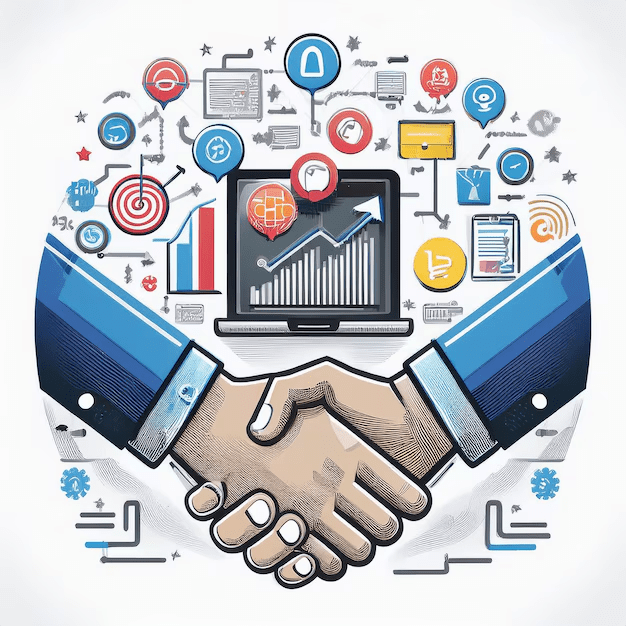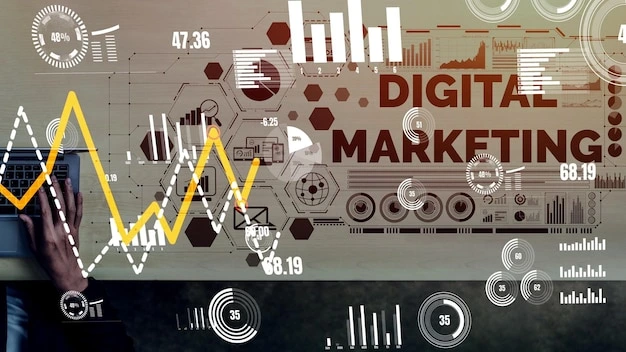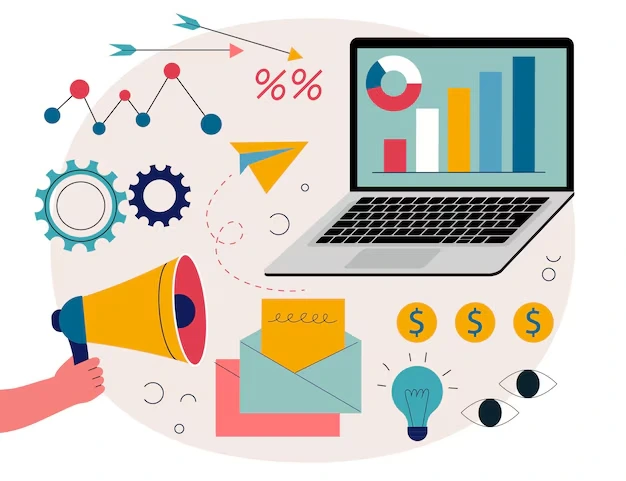When discussing the tools offered to an online marketer, we can confidently include audience triggers as decisive ones. They are enabling tools for devising personalization approaches.
Finally, are audience triggers what fans do? What do audience triggers let fans do?
They enable marketers to set up automatic replies appropriate for certain specified activities. These could vary from a certain kind of website activity to the type of products purchased, and such an approach adds value to the customer.
This guide will explain the audience triggers, the advantages of these tools, and how to use them correctly.
Audience Triggers in Digital Marketing: The Key to Effective Advertising.
Simply put, audience triggers are a necessary evil in digital marketing as they are an action accelerator. Some users’ activities trigger them and provide automated actions in response. This means that every customer has a unique journey built for them without any effort on their end.
Effective audience triggers originate from the concept of audience segmentation. Marketers have stronger attack plans by dividing users according to behavior, demographic information, or preferences.
This is what audience triggers do in marketing –
Listen to the clicks and views of users.
Interpret the data to profile a user.
Start sending out content that suits a reader.
Thus, audience triggers help marketers optimize campaigns and reach the target audience effectively and promptly. Brands have tools to remain relevant and target users with perfect timing. When properly used, audience triggers enhance engagement and optimize conversions.
The Mechanisms of the Audience Triggers
The mechanisms of the audience triggers are, in essence, automation and data analysis. For instance, triggers can be fired when a user visits a certain page or adds a product to a cart. This automation helps marketers to take action promptly.
Data powers audience triggers. Marketers can learn a lot by looking at what audiences do. They can also define circumstances aimed at achieving both commercial and audience objectives. When such a situation occurs, the trigger goes off with the intended message or action.
Timing and relevance are important factors in a trigger’s success. The right trigger sent to the user at the right time can increase engagement. This optimizes the level of interference as interactions are fruitful and desired goals are reached.
Specific Objectives Achieved By Using Audience Triggers
Marketers who wish to use audience triggers effectively can perform all these tasks. These tasks increase user involvement and the efficiency of the marketing effort.
As spelled out in the audience targeting definition, one major application of audience triggers is in targeting. In addressing audience triggers, audience behavior or an audience’s characteristics are used. Given a segment audience, it is possible to send a marketing message aimed at that segment for higher odds of success.
Triggers automate the process of sending follow-up communications. They could send emails or messages automatically after the user reaches a certain point, such as abandoning a shopping cart. This automation eliminates the need for a hefty investment in manpower and utilizes all chances of engaging with the user again.
Moreover, triggers in the audience assist in increasing the upselling and cross-selling opportunities. Having established the purchase patterns, companies can also suggest purchasing related products. This strategy increases sales by leveraging the preferences and habits of the users.
Here are some of the important functions that can be performed through audience triggers:
- Segmentation: Dividing behavior into categories – users that exhibit certain actions
- Follow-ups: Send communications automatically after interaction.
- Upselling/Cross-Selling: Marketing other products.
- Re-engagement: Getting users who have not interacted for a given period to interact again.
- Personalization: Providing unique experiences to users based on the knowledge of the data.
There are manipulations with the audience of the target audience’s content that are performed more efficiently.
Individual Customer Experience by Audience Triggers
Audience triggers are important elements when individualizing customer interaction processes. Marketers respond to certain individual user behaviors and actions, allowing them to create a unique marketing funnel for every client. This helps in customization, as the message and the offers suit each user.
Triggers help shift the audience’s focus using data such as website interactions or purchase history. This clear-cut choice makes the customers feel special and boosts their coherence with the brand. Since most shoppers lean toward personalized recommendations, more people will engage with the brand.
Furthermore, this individualized perspective could help multiply conversion rates by quite a significant margin. After all, when people get the right content, they usually want to act. Audience triggers are thus instrumental in building relationships and stoking loyalty, converting one-off buyers into chronic ones.
Engagement is an important factor in customers’ ongoing relationship with the company. Audience triggers enable marketers to reach their users at the right time, and timely messages enable brands to get customers’ attention.
Triggers are used to take and appreciate the customers’ interests and unique behaviors. This makes every interaction personal and meaningful. When this happens, the desire to return to the website increases, and he eventually becomes a brand ambassador.
As triggers motivate the brand to stay in contact with the audience, retention becomes easier. It has always been challenging to decide whether to make a purchase. Reminders, new stock, or even wish list items can ensure the brand is at the forefront of the mind. So, it’s a net win for any strategy to drive loyalty.
Triggered Messages to the Rescue: Zooming in on Email Marketing and Not Only
Email marketing is equally rising, and audience triggers are significantly important. This is very helpful since it allows good communication that has been tailored to be specific to the user’s activities within the website. For instance, triggers can send out automated welcome emails or even follow-ups after buying a product.
More than just email marketing, triggers can send app notifications and even SMS alerts. These channels extend brand engagement to consumers where they target users. However, it is important to note that all platforms should have a similar message.
Messages efficiently reach the target audience and are not limited to one platform. Rather, they cut across many platforms and facilitate communication.
Task Accomplished Examples with Trigger Audience:
Based on the history of previous searches, suggest related items to purchase.
Users who still need to complete their checkout process can be reminded through alerts.
A welcome series for newcomers to the brand to explain the company’s jurisdiction is done.
Properly applying audience triggers bridges the gap between brands and customers. Brands can guarantee that the correct information is sent to the correct person at the right time. This accuracy will greatly improve customer satisfaction and brand loyalty.
Success Evaluation of Audience Trigger Campaigns
Evaluating the effectiveness of audience trigger campaigns is fundamental. Key performance indicators (KPIs) are inextricable from this regard. Metrics such as open, click-through, and conversion rates depict the campaign’s overall performance.
Measuring user activity is important to determining the trigger’s impact. Evaluating user patterns helps to learn the aspects of the various triggers that are effective and those that are ineffective. This information can help make the necessary changes to improve the overall impact.
Besides, E/L testing is critical for trigger modification. This prevents audience trigger strategies from becoming static, so marketers can observe the best strategy by engaging in such comparisons. This way, trigger campaigns are tested and refined, ensuring tremendous relevance and impact.
Best Practices in the Use of Audience Triggers.
Strategy is needed if audience engagement triggers are to be relied on for maximum impact. First, ensure that the focus is on what is to be achieved and the business goals. Such an alignment ensures that triggers serve a purpose and carry a sizable impact.
Segmentation is a prerequisite for effective trigger deployment. Divide your target audience into different groups based on varying behaviors and preferences. Segmentation enables enhanced engagement and relevance since such triggers are more focused.
Also, timing and relevance are essential. Deliver trigger messages when they are most likely to be effective. Use data analytics to help determine the best times for engagement. This helps to increase the chances of getting the target audience’s attention and getting them to act.
The Future of Audience Triggers: Trends and Innovations
Innovations in audience triggers are transcending boundaries as technology improves. Triggers are increasingly optimized through machine learning and AI, making targeting and personalization more sophisticated.
Real-time data is becoming the norm when using triggers for marketing purposes. This means a business’s response time is faster, and the engagement methods are more dynamic. Organizations can now change their messages based on how their audience responds at that particular moment.
It also bears noting that future trends will likely see more significant synergies with other marketing tools. This relationship enhances data insights and promotes better cross-channel marketing strategies. It guarantees that audience triggers are relevant in a rapidly transforming digital landscape.
Conclusion: Maximizing The Potential Of Audience Triggers
Today’s marketing strategies simply cannot succeed without audience triggers. They allow for personalization and also help with improved customer engagement. If well-designed, they have the potential to alter the customer experience.
However, to achieve maximum potential, attention must be paid to the relevance and timing of the triggers. Changes, such as customer focus, innovation, and ethical practices, must be adopted. This will help push your marketing to new heights.
Wildnet Technologies is one of India’s leading digital marketing companies that offers AI-infused PPC services. Our PPC services have helped 4,100+ clients generate a ROAS, or Return on Ad Spend, of 4X on a Media spend of more than USD 43 million.
Read More
- How every Google Ads bid strategy helps in driving the campaign to success
- Harnessing AI for Google Ads: Smarter Ads Campaigns
- All 9 Types of Google Ads Campaign Explained
- How Should Marketers Use Ai-Powered Search Ads To Accomplish Their Business Goals?
- How to Remove Bad Reviews from Google My Business
- In What Way Can The Power Of Google’s AI Be Beneficial To Advertisers?
Faq
- What do audience triggers allow you to do?
Audience triggers in Google Ads allow you to target specific groups based on behaviors, interests, or demographics, enabling personalized ad delivery and improving campaign relevance. - What do audience triggers allow you to do on Quizlet?
Audience triggers allow you to create personalized study sets or quizzes based on user preferences or study habits, enhancing user engagement and learning outcomes. - What can Google Ads do with audiences?
Google Ads can segment and target audiences based on their behavior, interests, demographics, and past interactions with your website, improving ad relevance and performance. - What is an audience report in Google Analytics?
An audience report in Google Analytics provides insights into your website’s visitors’ characteristics, behaviors, and demographics, helping you understand user engagement and refine marketing strategies.







